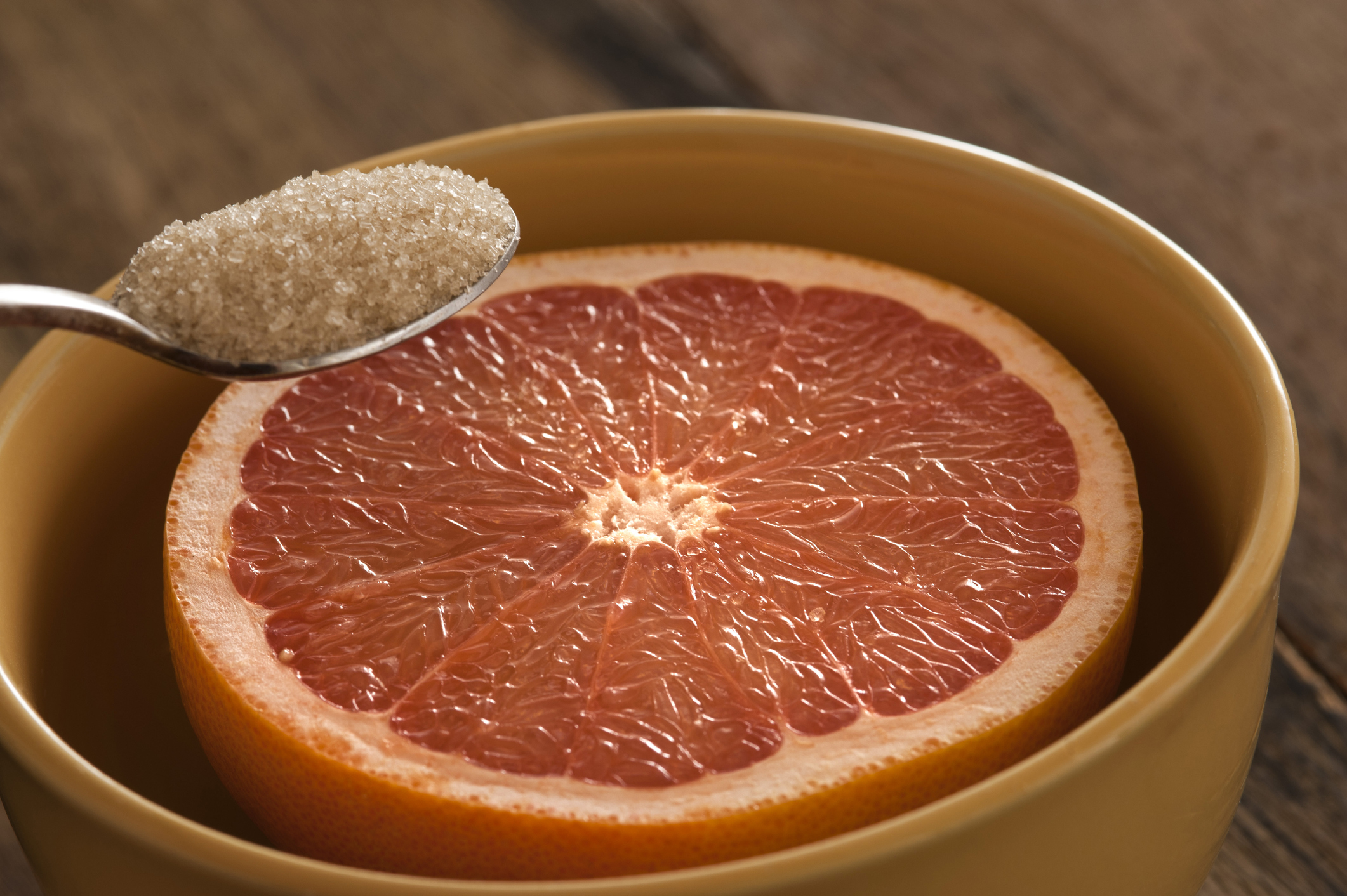Get Easy Health Digest™ in your inbox and don’t miss a thing when you subscribe today. Plus, get the free bonus report, Mother Nature’s Tips, Tricks and Remedies for Cholesterol, Blood Pressure & Blood Sugar as my way of saying welcome to the community!
How sugar steals your vitamin C

My dad was a man ahead of his time.
He never went to college; he drove a newspaper delivery truck for 35 years to support his family.
When he wasn’t working or sleeping, my dad read voraciously. He was always open to new ideas, especially about health and self-improvement.
One of his favorite books was How to Live Longer and Feel Better, by Nobel Prize-winning chemist Linus Pauling. Because of that book, my sister and I took vitamin C tablets every day for much of our childhood.
Although Linus Pauling was arguably the leading chemist of his time, he was branded a quack by some, mainly due to claims he made about vitamin C.
But considering that Pauling took very high doses of vitamin C daily and lived to be 93, I hope you’re inclined to learn more about this amazing vitamin and the surprising reason your body may not be getting enough.
An “essential” vitamin
Pauling claimed that vitamin C, also known as ascorbic acid, wasn’t a vitamin at all, but an essential substance that most animals manufacture in their own bodies.
He proposed that, because of a long-ago mutated gene, we humans can no longer manufacture our own vitamin C, but must get it from outside sources, namely, food and supplements.
Not only that, Pauling claimed that conventional medicine had long been ignoring research suggesting that high doses of vitamin C might be a cure for many illnesses, including cancer and heart disease.
But the medical profession laughed at him, implying that a chemist couldn’t possibly understand the intricacies of medical science.
Fast forward to 2020, when doctors in 23 New York hospitals were giving their COVID-19 patients 1,500 milligrams of intravenous vitamin C immediately upon being admitted, and three to four times a day after that, in hopes of warding off the inflammatory overresponse known as a cytokine storm that’s killing many COVID-19 patients.
But don’t reach for that bottle of vitamin C just yet…
First, you’ll want to know about something you may be doing that will make it completely useless.
Vitamin C and our immune system
In order to effectively use the antioxidant power of vitamin C to combat oxidative stress, our white blood cells need as much as 50 times more vitamin C within their cell walls than in the surrounding blood plasma.
Our respiratory tract is especially full of white blood cells called macrophages that protect against germs we breathe in. And their action is dependent upon vitamin C.
Vitamin C is also important for the body’s production of interferons, substances that support communication between cells and keep viruses from replicating once they are inside a cell.
Was this ever more important than now?
Sugar and Vitamin C are in competition for entry into our cells
In the 1970s, researchers found that sugar and vitamin C enter our cells using the same pathway, known as Glut-1 receptors. This makes sense, since animals that manufacture vitamin C in their bodies use glucose to do so.
There’s just one problem.
Glut-1 receptors prefer glucose over vitamin C. This means that, when given the chance, they’ll always choose sugar over vitamin C.
Not only that, but consuming too much sugar can result in even more free radicals, which will require even more vitamin C to neutralize them.
But sugar blocks the entry of vitamin C into our system. Sugar gets there first and attaches to those receptors, leaving little or no entry point for vitamin C.
Supplements and foods that will give you plenty of Vitamin C
So, what should you do about all of this?
Well, there are a few things:
First, cut down on sugar where you can and look at the ingredient panel of foods to see where it’s hiding.
Next, take vitamin C supplements — and forget the hogwash you read from medical skeptics that tell you there’s no reason to look for nutrients outside of food. You’ve just learned one very good reason for supplementing that they aren’t taking into consideration.
Acerola cherry and rosehip supplements are also high in vitamin C. But make sure the supplements you’re taking are not made with sugar!
That would be the same as not taking them at all.
How much should you take?
Vitamin C is water-soluble, so it’s highly unlikely that you’d overdose on it. Anything your body doesn’t need is simply excreted in the urine.
Personally, I take 2,000 mg a day without any side effects (the usual ones are diarrhea and nausea). According to the Harvard T.H. Chan School of Public Health, that’s the Tolerable Upper Intake Level (the maximum daily intake unlikely to cause harmful effects on health).
But vitamin C is readily available in a wide range of foods (besides oranges and grapefruits). Some may surprise you:
- Chili peppers
- Guavas
- Sweet yellow and red peppers
- Fresh thyme
- Mustard spinach
- Kale
- Brussels sprouts
- Broccoli
- Kiwi fruit
- Persimmons
- Papayas
- Strawberries
- Sweet potatoes
- Tomatoes
Editor’s note: Are you feeling unusually tired? You may think this is normal aging, but the problem could be your master hormone. When it’s not working, your risk of age-related diseases skyrockets. To reset what many call “the trigger for all disease” and live better, longer, click here to discover The Insulin Factor: How to Repair Your Body’s Master Controller and Conquer Chronic Disease!
Sources:
- How Sugar Sabotages Your Vitamin C Intake — LivOn Lab
- Vitamin C, Linus Pauling was right all along. A doctor’s opinion — Medical News Today
- Strengthen your immune system with vitamin C — Health and Science














